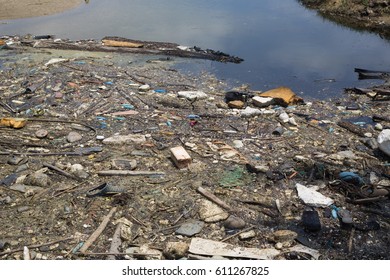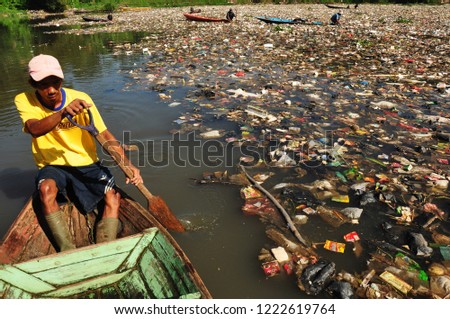Here's proof of just one of them:

https://www.google.com/search?rlz=1C1ARAB_enGB463GB464&q=RIVER+IMAGES&tbm=isch&source=univ&sa=X&ved=2ahUKEwjfob272fzhAhU3SRUIHbAKDb8Q7Al6BAgHEBs&biw=1244&bih=844#imgrc=lqM6fskfxeihKM:
Shrimp in British rivers ‘all test positive for cocaine’, research finds
YAHOO STAFF WRITER
May 2nd 2019 3:42AM
Illegal drugs such as cocaine and ketamine are found in the bodies of animals living in British rivers – along with banned pesticides and other chemicals.
Researchers from University College London collected samples from 15 sites in London, looking for 'micropollutants' in the bodies of animals such as freshwater shrimp.
A hundred per cent of the shrimp tested positive for cocaine.
The researchers found that ketamine and banned pesticides were also widespread.
Lead author, Dr Thomas Miller from King's College London, said: 'Although concentrations were low, we were able to identify compounds that might be of concern to the environment and crucially, which might pose a risk to wildlife.
'As part of our ongoing work, we found that the most frequently detected compounds were illicit drugs, including cocaine and ketamine, and a banned pesticide, fenuron. Although for many of these, the potential for any effect is likely to be low.'
Professor Nic Bury from the University of Suffolk said: 'Whether the presence of cocaine in aquatic animals is an issue for Suffolk, or more widespread an occurrence in the UK and abroad, awaits further research.
'Environmental health has attracted much attention from the public due to challenges associated with climate change and microplastic pollution. However, the impact of 'invisible' chemical pollution, such as drugs, on wildlife health needs more focus in the UK as policy can often be informed by studies such as these.'
Britain’s iconic lakes and
rivers polluted with plastic, study reveals
https://www.independent.co.uk/environment/plastic-pollution-uk-lakes-rivers-microplastics-
friends-of-the-earth-a8810831.html
friends-of-the-earth-a8810831.html
‘It was more than a little startling to discover microplastics were present in even the most remote sites we tested’
Road run-off
London’s rivers are more polluted than they should be, and one of the causes is that sediment, heavy metals, petrol and other pollutants from cars are washing into them from roads when it rains.
The long term impacts of road run-off pollutants are not fully understood, but the short term effects can be acute and contribute to fish kills in so-called ‘first flush’ events. This happens when a long dry period is followed by rain, as seen in the 2018 drought in London. Organic material, hydro-carbons (major components of petroleum) and other chemicals build up on our roads, becoming more concentrated. When it does eventually rain, this sediment washes into London’s rivers. Oxygen levels crash as bacteria use oxygen to break down the organic material entering the river, leaving fish struggling to breathe. In the worst instances, they die.
Killing the sources of life: The 10 Most Polluted Rivers in the World

https://www.google.com/search?rlz=1C1ARAB_enGB463GB464&q=POLUTEDRIVER+IMAGES&tbm=isch&source=univ&sa=
X&ved=2ahUKEwjxhqDt1_zhAhUpSBUIHVCWDcIQ7Al6BAgJEA0&biw=1244&bih=844#imgrc=UQ8gEIKm3K4uFM:
One of our most precious gifts from nature, the Rivers, with its veins spread all across the planet, nurtures life wherever it flows. One of the most primary sources of food and fresh water, the rivers are indeed our source of life. It is no surprise that on the banks of our major rivers is where many of the advanced civilisations of mankind have flourished. Precious as they are, humans and their varied activities have still managed to nearly destroy them with alarming levels of pollution choking the rivers. The 10 most polluted rivers in the world are a testament to the adverse consequences of human carelessness.
Rampant industrialisation poor government regulations, corporate insensitivity towards the environment, inefficient waste management and a lack of awareness among the masses have led to many of the rivers being polluted beyond acceptable levels. With millions of tons of waste being generated globally every year, landfills, waterways and finally the ocean gets bombarded by the massive amounts of trash that are dumped there.
The world's arteries are CLOGGED and the
oceans are DYING!

No comments:
Post a Comment
Note: only a member of this blog may post a comment.